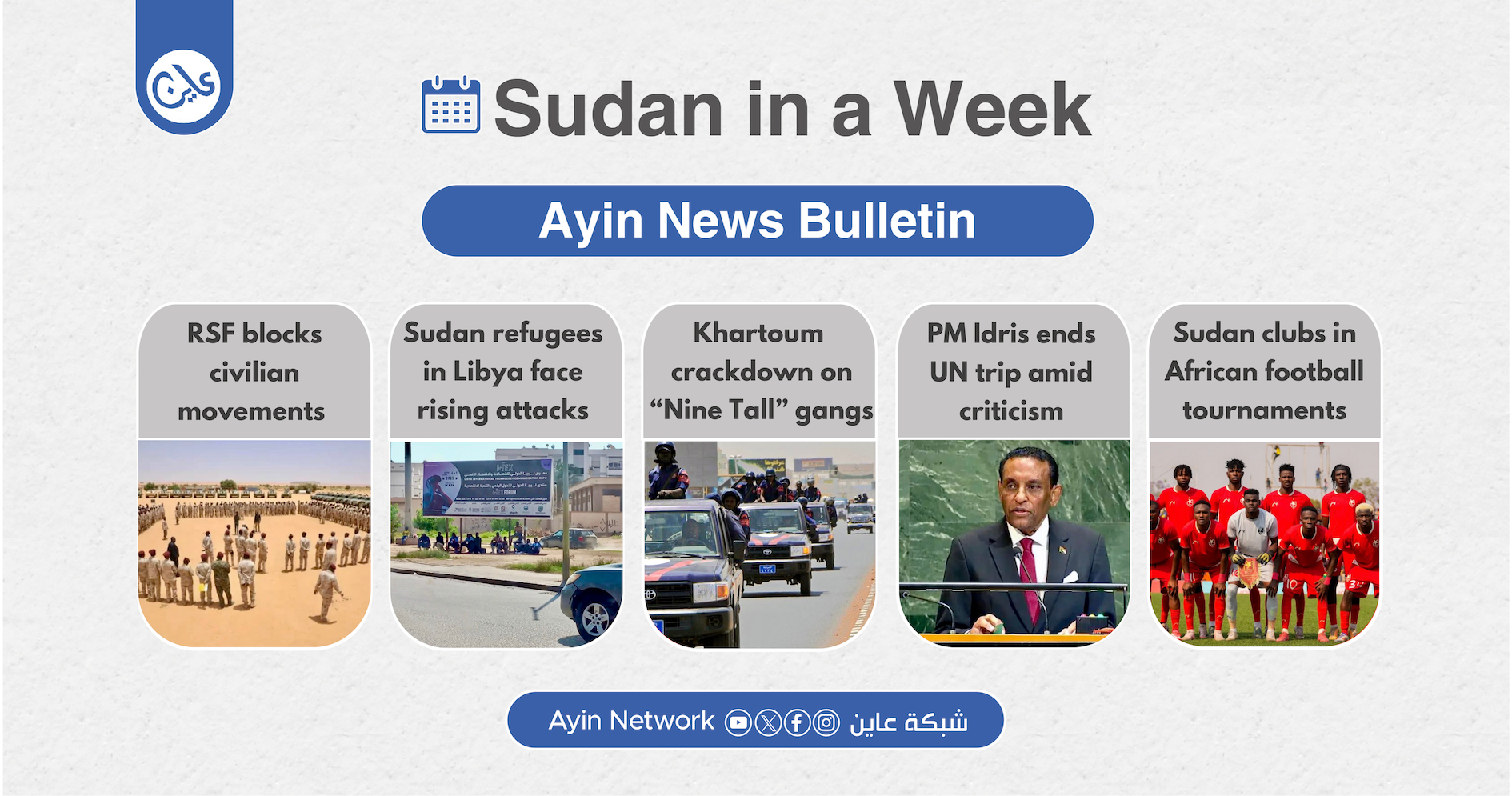Sudan in a week: Ayin News Bulletin #3
30 September 2025
To keep our readers informed of the multitude of events taking place in Sudan amidst the ongoing, devastating war, we have developed a series of weekly news briefs, covering eight major topics of the week.
In this week’s edition:
- RSF blocks civilian movements in Sudan
- Sudanese refugees in Libya face rising attacks
- Sudanese army escalates fighting in Kordofan
- Prime Minister Idris ends UN trip amid criticism
- Khartoum launches crackdown on “Nine Tall” gangs
- El Fasher siege deepens humanitarian crisis
- Relative relief in besieged Dilling
- Sudanese clubs in African football tournaments
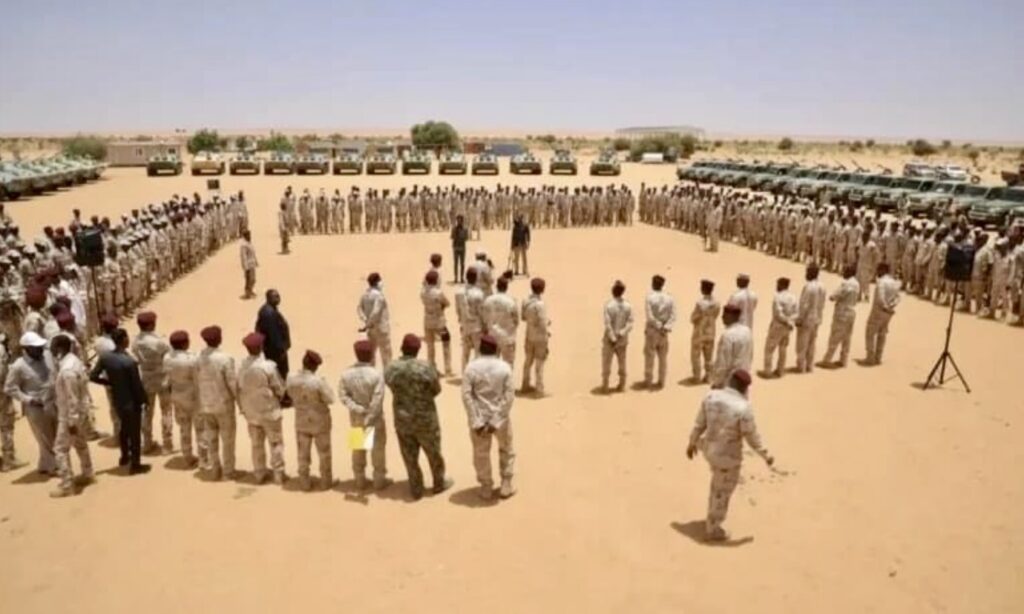 RSF blocks civilian movement in Sudan
RSF blocks civilian movement in Sudan
The Rapid Support Forces (RSF) are tightening restrictions on civilian movement in areas under their control, preventing citizens from traveling to army-held regions. The measures have particularly affected young men seeking work in Sudan’s northern gold-mining zones, as well as students attempting to continue their studies in safer areas.
Civilians say worsening living conditions in RSF-controlled territories have pushed many to attempt leaving. However, RSF patrols have detained dozens, accusing them of planning to join army-aligned militias. Last week, in the town of Umm Bader in North Kordofan, RSF forces arrested around 66 young men and students, transferring them to prisons in Darfur. Women were allowed to continue their journeys.
Eyewitnesses reported that the detained travelers were en route to River Nile State for gold mining jobs. Many of the arrested were students hoping to access universities that have relocated from Darfur and Kordofan to safer northern and eastern states.
Families of detainees say some have only been released after paying ransom. A mother told Ayin that her son was imprisoned for three weeks after being stopped in Umm Bader while traveling to resume his education in Omdurman.
Rights groups warn that the RSF’s actions are depriving thousands of young Sudanese of education and livelihoods. Meanwhile, arrests and forced detentions continue, deepening the humanitarian crisis in regions under RSF control.
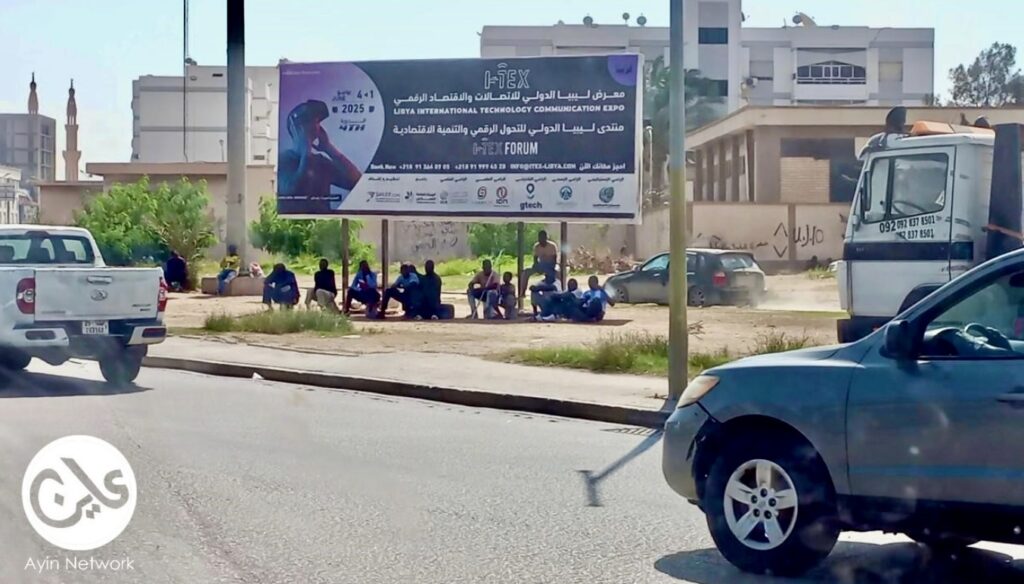 Sudanese refugees in Libya face rising attacks
Sudanese refugees in Libya face rising attacks
Sudanese refugees in Libya are facing escalating violence amid growing hostility toward foreigners. Local mobs and armed groups have carried out beatings, killings, and home raids, targeting thousands of African migrants, including the 210,000 Sudanese who have fled to Libya since Sudan’s war began more than two years ago.
Eyewitnesses in Tripoli told Ayin that many families have confined themselves indoors, fearing attacks in markets and public spaces. Refugees say even United Nations registration documents offer no protection; in some cases, attackers see them as proof that foreigners are seeking to resettle in Libya.
The violence follows a social media campaign calling for the mass expulsion of foreigners. Organizers accused refugees of competing for resources with Libyan citizens, despite migrants insisting they do not intend to remain in the country permanently.
Diplomatic missions have been unable to intervene, with diplomats themselves facing risks amid militia-dominated streets. Repatriation, according to officials, is both dangerous and financially unfeasible, especially for conflict-hit countries like Sudan.
Human rights advocates warn that with the dissolution of Libya’s immigration department earlier this year, many foreigners are now being detained under inhumane conditions in militia facilities. Without urgent international intervention, refugees remain trapped between violence in Libya and the ongoing conflict at home.
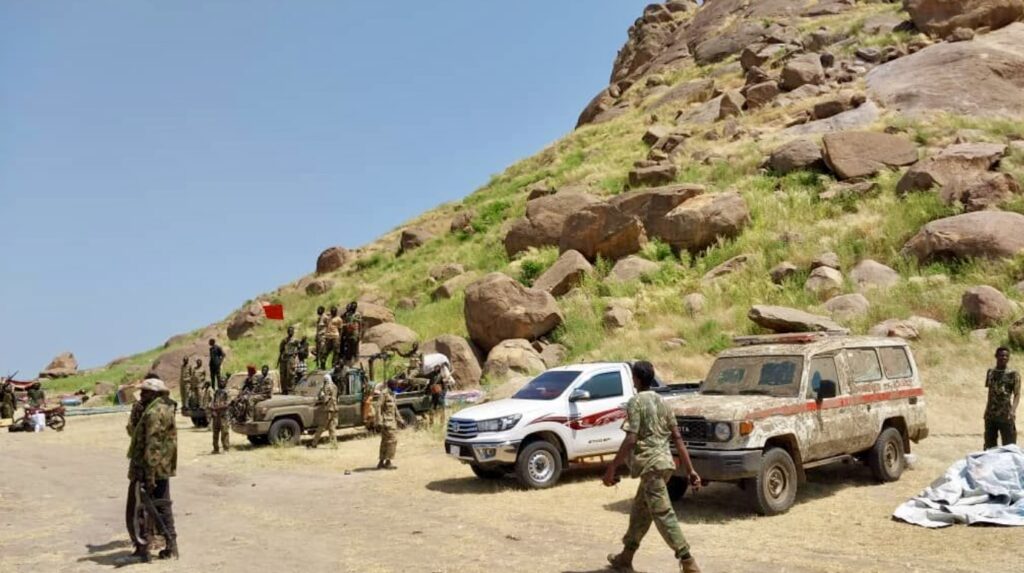 Sudanese army escalates fighting in Kordofan
Sudanese army escalates fighting in Kordofan
Fighting has intensified in North Kordofan, where the Sudanese army, backed by allied armed movements, launched new offensives against the Rapid Support Forces (RSF). Battles erupted last Friday west of El Obeid, breaking weeks of relative calm caused by heavy rains.
Military sources told Ayin that the army recaptured the Al-Ayara and Umm Sumaima areas along the western road toward Darfur. The RSF launched counterattacks but were repelled. Despite these gains, RSF units continue to hold territory in the south and east of El Obeid.
Army positions now stretch to Ad Sidr, near Rahid al-Nuba, on the vital Omdurman–Bara road. Analysts say this gives the army an advantage in preparing further assaults on RSF strongholds.
Over the weekend, army chief Abdel Fattah al-Burhan visited Bara and El Obeid for the first time since the war began. He vowed to continue operations “until the last RSF-held area is liberated.”
Military sources expect fresh battles soon as the army mobilises near Bara, eyeing the strategic towns of Umm Kreidim and Al-Mazroub. Control of these areas would open a path to Al-Khawi and strengthen the army’s advance into Darfur.
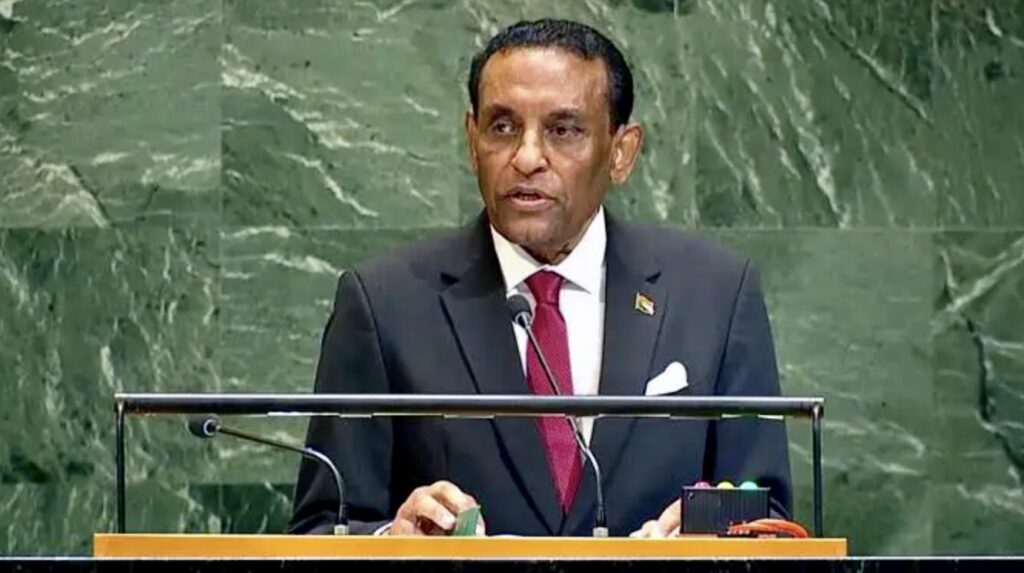 Prime Minister Idris ends UN trip amid criticism
Prime Minister Idris ends UN trip amid criticism
Sudanese Prime Minister Kamil Idris has wrapped up a visit to New York after addressing the UN General Assembly and holding talks with international officials. In a meeting with Sudanese citizens in the city, he promised to “bring the country out of the dark tunnel,” describing Sudan’s challenges as temporary.
During his speech at the UN, Idris reaffirmed his government’s commitment to a national roadmap calling for a ceasefire, RSF withdrawal, and implementation of Security Council Resolution 2736. He also met with UN Secretary-General António Guterres, AU Commission chair Mahamat Ali Youssouf, and the foreign ministers of Egypt and Pakistan.
Despite these engagements, analysts say the visit produced little diplomatic traction. Researcher Omar Abdel Rahman told Ayin that Idris’ meetings “did not achieve a breakthrough” and that the more influential Quartet countries—Saudi Arabia, Egypt, the UAE, and the US—held separate talks without mentioning Sudan’s delegation.
Abdel Rahman described the absence as a diplomatic embarrassment, suggesting Idris’ insistence on attending stemmed from rivalry with the RSF-dominated founding government.
Criticism also followed a sideline meeting between Sudan’s foreign minister and Iran’s top diplomat, which Abdel Rahman said damaged Sudan’s credibility at a sensitive time. Observers believe the government in Port Sudan left New York without the recognition it had sought.
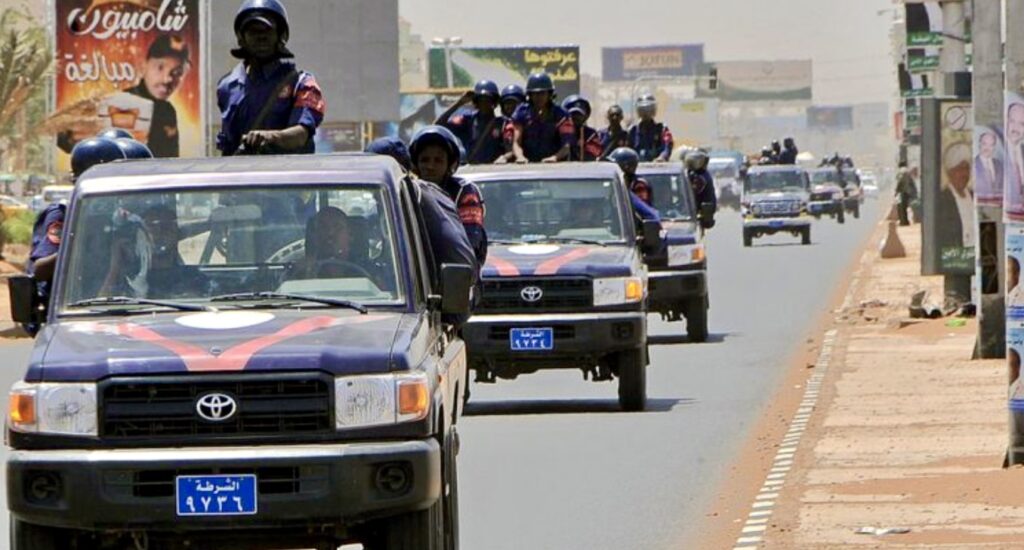 Khartoum launches crackdown on “Nine Tall” gangs
Khartoum launches crackdown on “Nine Tall” gangs
Authorities in Khartoum have created a new security unit to combat the surge of “Nine Tall” gangs, notorious for violent robberies in the capital. The move follows rising reports of motorcycle-riding thieves targeting women and passersby in southern neighbourhoods.
The local government announced Monday that checkpoints and patrols will back the new unit, which aims to dismantle gangs specialising in phone and handbag snatching. Officials described the crime wave as a serious threat to public order worsened by the war.
Residents say gangs use speed and surprise, often chasing victims into deserted side streets. In some cases, robbers have turned to armed assaults.
Civilian groups accuse remnants of the former Bashir regime of protecting such gangs to sow chaos and weaken public trust in governance. Authorities, however, say the war has disrupted policing, with many officers absent and prisons emptied during clashes.
Security experts caution that Khartoum’s fragile policing capacity—coupled with reduced court operations—limits the new unit’s effectiveness. While the Ministry of Interior has expanded civil registry offices, critics say neighbourhood policing has been neglected, leaving the capital vulnerable to further lawlessness.
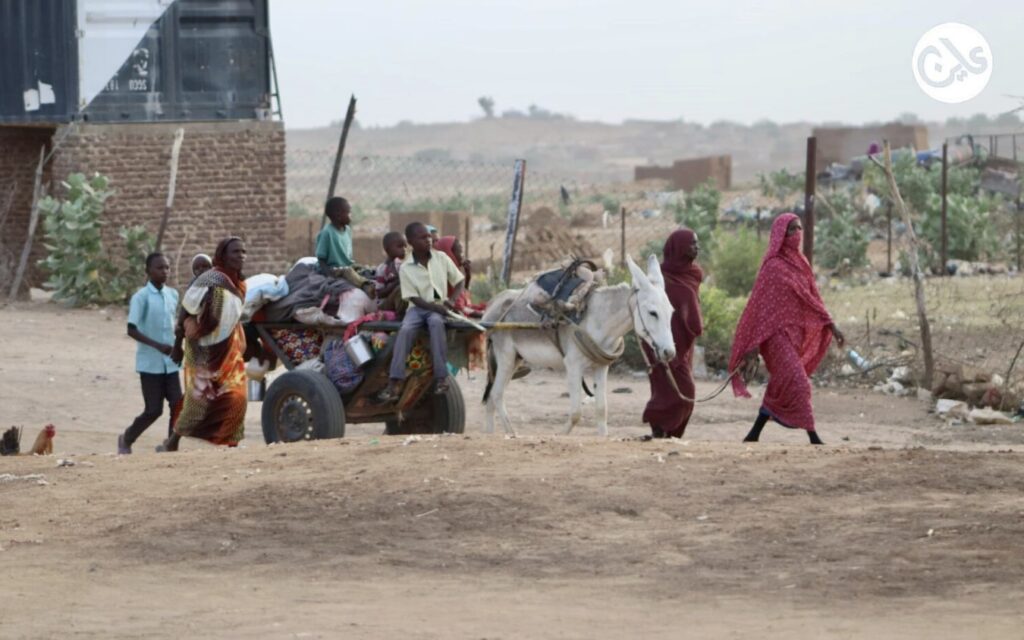 El Fasher siege deepens humanitarian crisis
El Fasher siege deepens humanitarian crisis
El Fasher, capital of North Darfur, remains under a crippling siege by the RSF, leaving civilians trapped and aid deliveries blocked. Daily shelling has worsened conditions, and new satellite images show earthworks stretching 68 kilometres around the city, with only narrow escape routes remaining.
The UN’s humanitarian office warned Monday that the situation is deteriorating rapidly, as civilians risk violence and looting when attempting to flee. Thousands are now moving on foot through unsafe corridors in search of safety.
Medical sources report worsening malnutrition. The Sudan Doctors Network confirmed that more than 20 people, including children and pregnant women, died this month alone from hunger-related causes.
Despite the siege, the Sudanese army carried out an airdrop to resupply its 6th Infantry Division, its main garrison in the city. It marked the first such delivery since the RSF downed an army warplane earlier in the conflict.
The UN has reiterated calls for safe passage for civilians and urgent humanitarian access. Observers warn that without relief, El Fasher risks sliding into famine conditions.
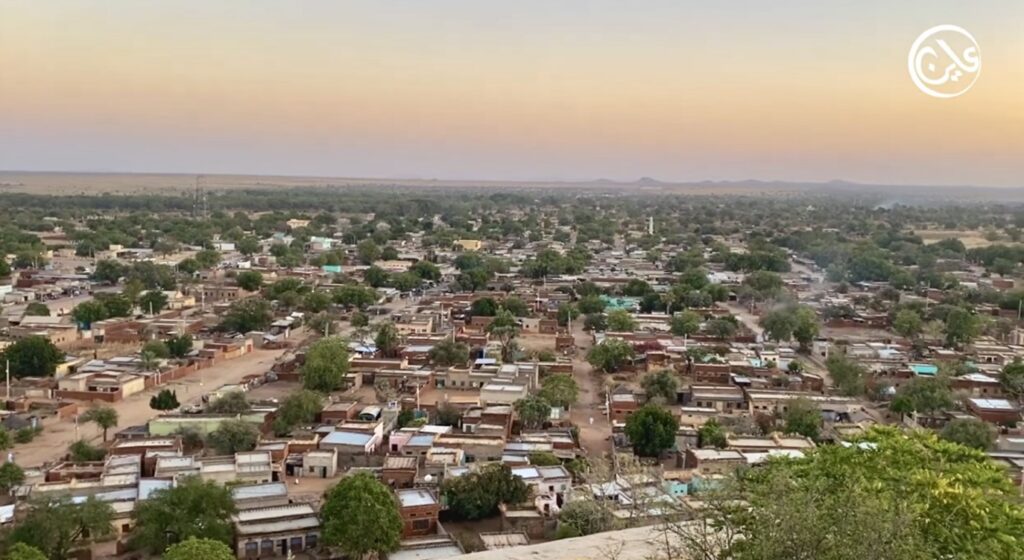 Relative relief in besieged Dilling
Relative relief in besieged Dilling
Residents of Dilling, South Kordofan State, have reported slight improvements in living conditions after the arrival of new goods and agricultural products. The city, under siege for over a year, has seen food prices fall sharply in recent weeks.
Traders say the cost of sugar dropped from 45,000 to 20,000 Sudanese pounds per kilogram, while cooking oil prices fell by two-thirds. Corn, previously in severe shortage, has also become more available.
The improvement comes despite the city remaining blockaded—RSF forces control access from the north, east, and west, while SPLM-North holds the southern approaches. Locals believe smuggling networks bypassing checkpoints are supplying markets.
Volunteer activists attribute the change partly to the early harvest season, which has brought crops such as corn and watermelons into circulation. They say this has temporarily eased some of the hunger faced by residents.
Still, poverty remains widespread. Many families cannot afford basic goods even at lower prices, with large numbers unemployed and reliant on tree leaves for sustenance. Aid groups warn that the humanitarian crisis in Dilling remains dire despite the relative price relief.
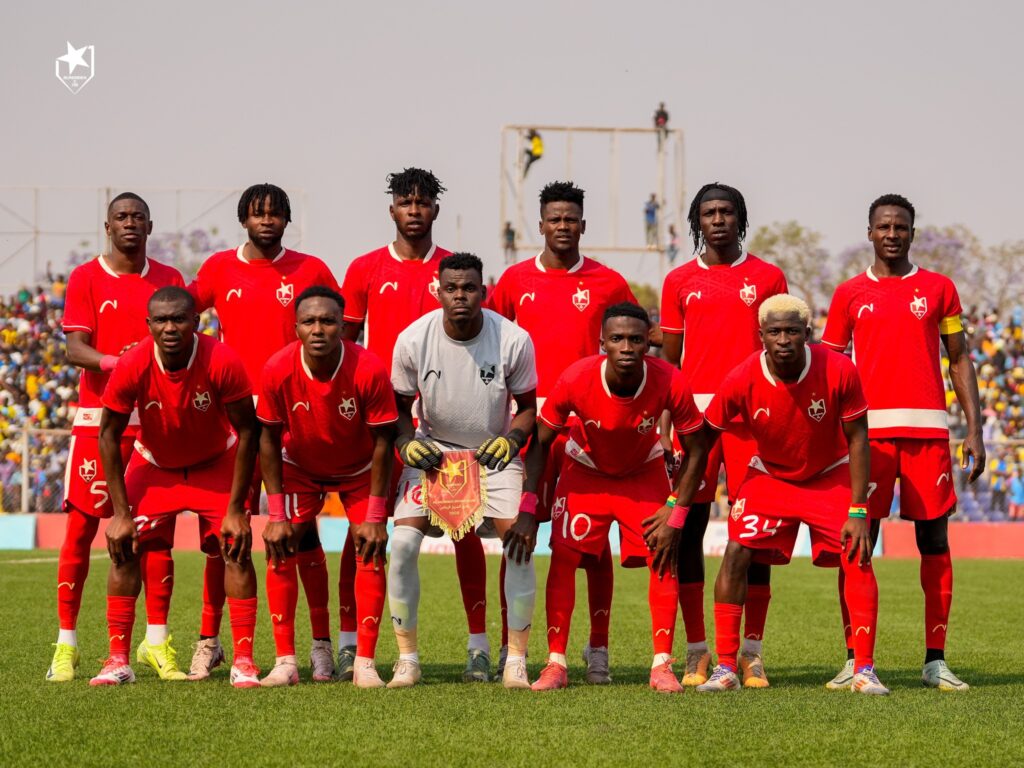 Sudanese clubs in African football tournaments
Sudanese clubs in African football tournaments
Four Sudanese football clubs are competing in continental tournaments this year, though two have already been eliminated in the opening stages.
In the CAF Confederation Cup, Al-Ahly Wad Madani and Al-Zamaleh Umm Ruwaba both exited early. Al-Ahly defeated Tunisia’s Etoile du Sahel 1–0 in the first leg but lost 3–0 in the return match in Sousse. Meanwhile, Al-Zamaleh’s 2–1 victory in Nairobi over Somalia’s Dekedaha was not enough to overturn a first-leg defeat.
Both teams were making their first appearances on the continental stage, marking a historic moment despite the early exits.
In the CAF Champions League, Al-Hilal advanced to the second round after eliminating South Sudan’s Buffalo. Following a goalless draw in Juba, the Sudanese side clinched the return leg in Tanzania.
Al-Merreikh, however, faces a challenge after losing its opening tie to Congo’s Saint-Eloi Lupopo. The second leg will be played in Libya, where Al-Merreikh must win to stay in the competition.


